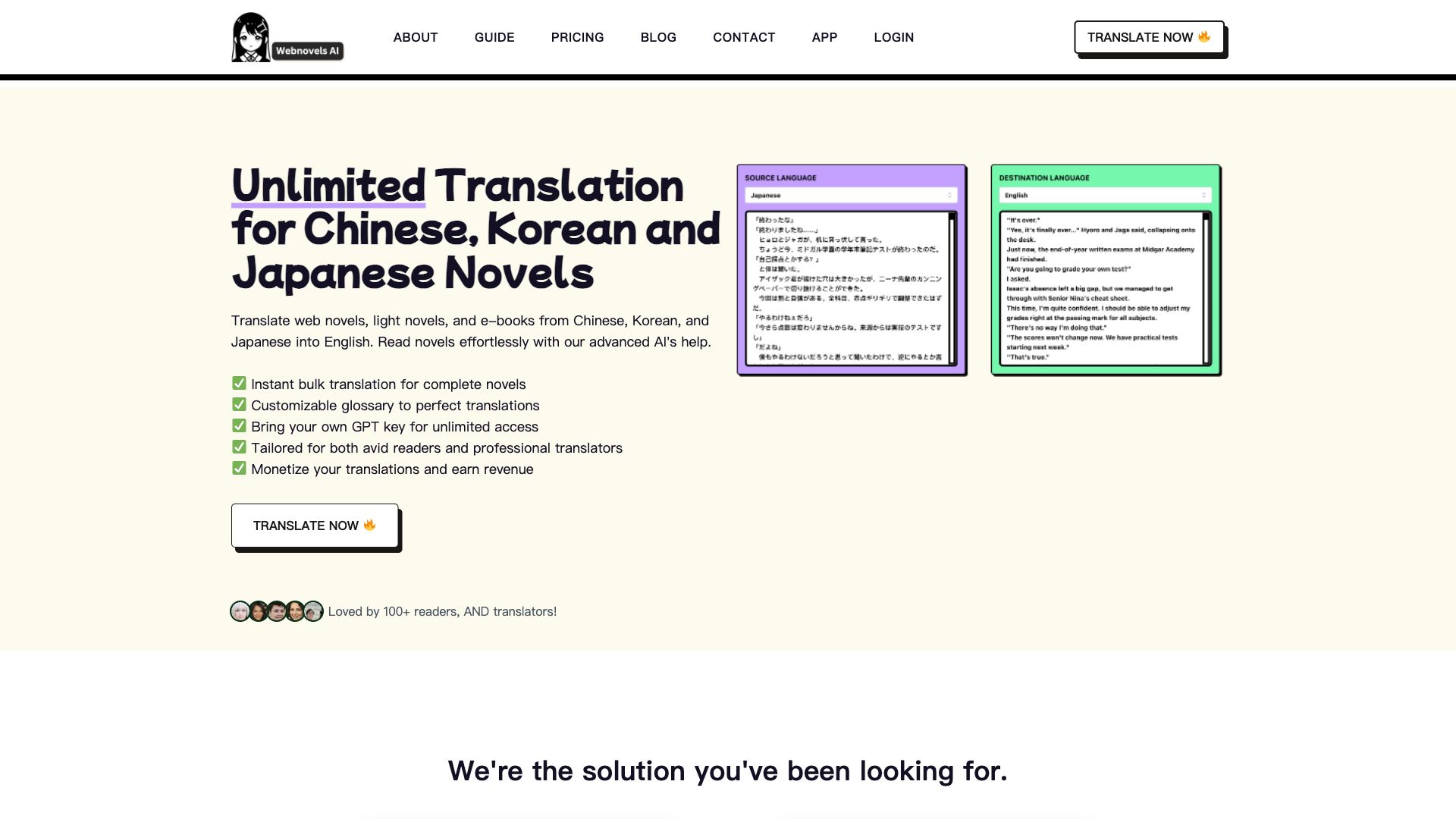Awesome AI Book Writing Tools in 2024
Discover the awesome 2 AI tools for 2024 By Candytools
Generate your realistics 3D book mockup image in seconds.
Webnovels AI is the first and best AI tool for translating Chinese, Korean, and Japanese light novels and web novels. Built for translators and readers.
More AI Tools Categories
What is AI Book Writing?
AI Book Writing: The Future of Storytelling?
AI book writing refers to the use of artificial intelligence (AI) tools and technologies to create written content for books. This can encompass various aspects of the writing process, including:
1. Idea Generation: AI can help brainstorm concepts, themes, and plot points for a story. It can analyze existing literature, identify trends, and suggest unique ideas based on user input.
2. Character Development: AI can generate detailed character profiles, including their background, personality traits, motivations, and even physical appearances.
3. Plot Outline and Structure: AI can assist in crafting a compelling narrative structure, outlining key events, plot twists, and resolutions based on chosen genres and writing styles.
4. Text Generation: AI language models, like GPT-3, can generate text based on provided prompts and instructions. These models can write different parts of the story, from dialogue to descriptive passages, while adhering to specific styles and tones.
5. Editing and Proofreading: AI-powered tools can analyze grammar, spelling, syntax, and style, providing suggestions for improvement and ensuring the text is polished and error-free.
Benefits of AI Book Writing:
- Increased Efficiency: AI can significantly speed up the writing process by automating tasks like outlining, drafting, and even editing.
- Enhanced Creativity: AI can introduce novel ideas and perspectives, pushing the boundaries of storytelling and exploring new narrative possibilities.
- Accessibility: AI tools can make book writing more accessible to individuals who may struggle with certain aspects of the process, like outlining or structuring.
- Personalized Content: AI can tailor content to specific audiences and preferences based on data analysis and user input.
Limitations of AI Book Writing:
- Lack of Emotional Depth: While AI can produce grammatically correct and engaging text, it may struggle to capture the nuances of human emotion and experience.
- Ethical Concerns: Questions arise regarding authorship, copyright, and the potential for plagiarism when using AI to generate content.
- Dependence on Data: AI models are trained on vast datasets, which can introduce biases and limit the originality of generated content.
- Need for Human Input: AI tools are still reliant on human input and guidance to create truly compelling and meaningful stories.
The Future of AI Book Writing:
While AI is rapidly transforming the world of writing, it is unlikely to replace human authors entirely. Instead, AI is likely to become a valuable tool for writers, enhancing their creative process and helping them overcome various challenges. As AI technology continues to evolve, we can expect even more sophisticated and intuitive tools that further empower writers and reshape the future of storytelling.

